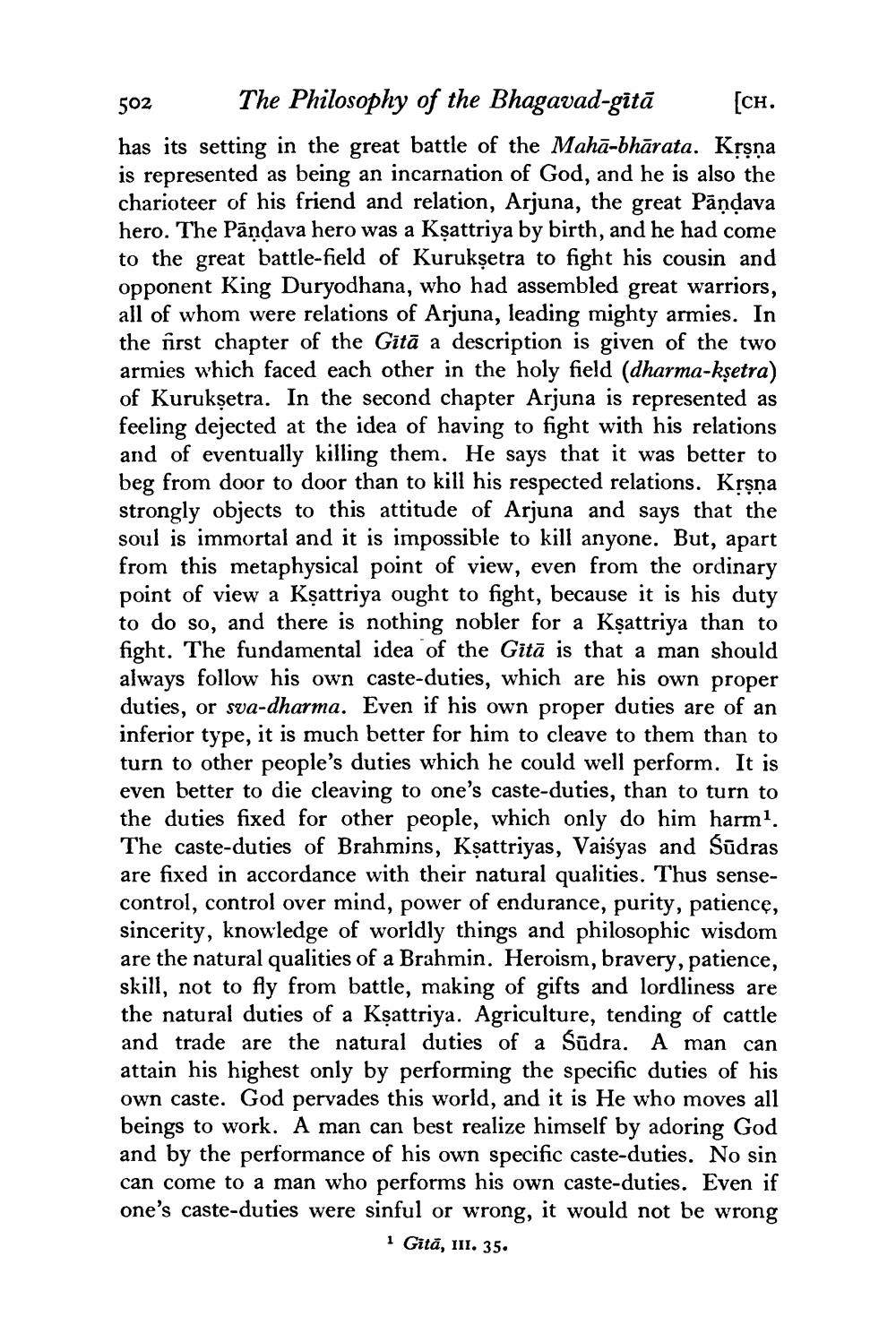________________
502
The Philosophy of the Bhagavad-gitā [ch. has its setting in the great battle of the Mahā-bhārata. Krsna is represented as being an incarnation of God, and he is also the charioteer of his friend and relation, Arjuna, the great Pāņdava hero. The Pāndava hero was a Kşattriya by birth, and he had come to the great battle-field of Kuruksetra to fight his cousin and opponent King Duryodhana, who had assembled great warriors, all of whom were relations of Arjuna, leading mighty armies. In the first chapter of the Gitā a description is given of the two armies which faced each other in the holy field (dharma-kşetra) of Kuruksetra. In the second chapter Arjuna is represented as feeling dejected at the idea of having to fight with his relations and of eventually killing them. He says that it was better to beg from door to door than to kill his respected relations. Krsna strongly objects to this attitude of Arjuna and says that the soul is immortal and it is impossible to kill anyone. But, apart from this metaphysical point of view, even from the ordinary point of view a Kşattriya ought to fight, because it is his duty to do so, and there is nothing nobler for a Kşattriya than to fight. The fundamental idea of the Gitā is that a man should always follow his own caste-duties, which are his own proper duties, or sva-dharma. Even if his own proper duties are of an inferior type, it is much better for him to cleave to them than to turn to other people's duties which he could well perform. It is even better to die cleaving to one's caste-duties, than to turn to the duties fixed for other people, which only do him harm1. The caste-duties of Brahmins, Kşattriyas, Vaisyas and Sūdras are fixed in accordance with their natural qualities. Thus sensecontrol, control over mind, power of endurance, purity, patience, sincerity, knowledge of worldly things and philosophic wisdom are the natural qualities of a Brahmin. Heroism, bravery, patience, skill, not to fly from battle, making of gifts and lordliness are the natural duties of a Kşattriya. Agriculture, tending of cattle and trade are the natural duties of a Sūdra. A man can attain his highest only by performing the specific duties of his own caste. God pervades this world, and it is He who moves all beings to work. A man can best realize himself by adoring God and by the performance of his own specific caste-duties. No sin can come to a man who performs his own caste-duties. Even if one's caste-duties were sinful or wrong, it would not be wrong
i Gitā, 11. 35.




